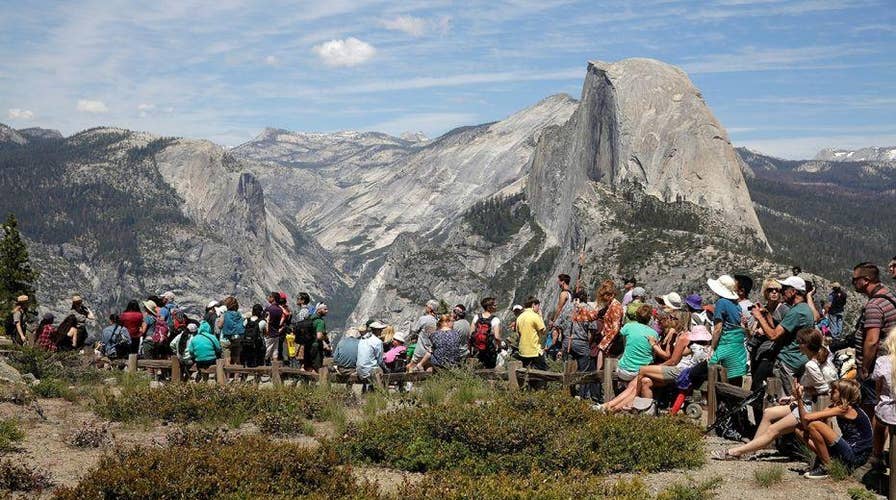National Park Service considering hiking entry fees
Under the proposed plan to generate revenue for maintenance projects, the National Park Service would charge $70 per vehicle at 17 of their 59 parks during peak visitation season.
A proposed plan to increase entry fees at 17 national parks across the country has been scrapped after widespread public opposition.
The National Park Service (NPS) announced in October 2017 it was considering the fare hike in order to generate revenue for desperately needed maintenance projects. The plan would entail increased rates at 17 of the 59 parks during peak visitation season, with prices at $70 per private vehicle, $50 per motorcycle and $30 per person on bike or foot.
Following the announcement, NPS offered a month-long period for the public to comment on the proposal. But after receiving over 109,000 comments from people opposing the plan, NPS has decided not to move forward with it, Travel + Leisure reports.
“So the NPS would more than double the current entry fee for peak season; I know if we were considering a trip to one of these parks and suddenly found that the trip would incur an exorbitant entrance fee, I would not…repeat not take my family on this trip,” read one of the 50,000 comments the U.S. Department of the Interior officials provided to The Washington Post.
Now that NPS won’t be increasing entry fees, a new plan must be developed in order to fund the close to $12 million maintenance backlog fees national parks are facing, according to Travel + Leisure.
“The plan is still being reviewed and not yet finalized; we've taken the public's suggestions seriously and have amended the plan to reflect those,” a Department of the Interior spokesperson told Travel + Leisure.
FOLLOW US ON FACEBOOK FOR MORE FOX LIFESTYLE NEWS
Parks that would’ve been affected by the rate hike include the highly-frequented Grand Canyon, Yosemite and Yellowstone as well as Utah’s Arches, Bryce Canyon, Canyonlands and Zion parks; California’s Sequoia & Kings Canyon and Joshua Tree parks; Montana’s Glacier; Wyoming’s Grand Teton; Washington’s Mount Rainier and Olympic; as well as Shenandoah in Virginia; Acadia in Maine; Rocky Mountain in Colorado; and Denali in Alaska.
Janine Puhak contributed to this report.









































